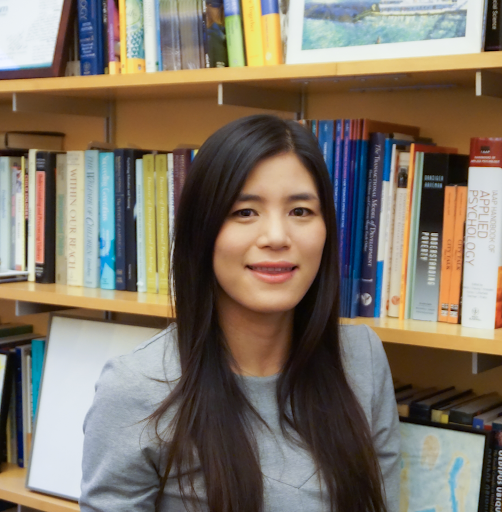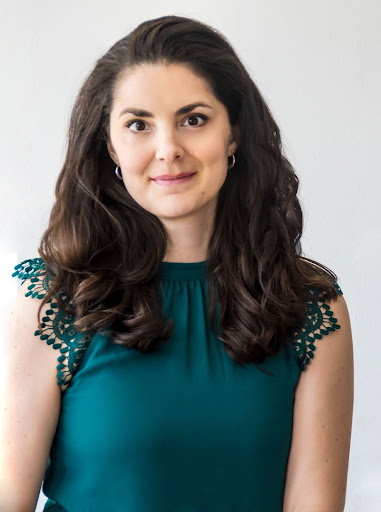Disruptions to schooling: Lessons from refugee experience in Lebanon
The COVID-19 outbreak ignited a monumental education emergency, disrupting in-person learning and relying on technological schooling solutions that exacerbated many pre-existing education inequities. Lack of child care options, inconsistent access to technology, and variable quality of remote learning experiences all contributed to some students’ infrequent or complete lack of attendance to virtual schooling. As kids go back to in-person learning, schools and educators face a critical question: How do we handle students who have missed most or all of remote learning?
Though the COVID-19 pandemic is the first substantial disruption to schooling in most of our lifetimes, there is a population of students who have experienced prolonged school absences before the pandemic: refugees. Our research on educational experiences of refugee children, such as Syrian refugees in Lebanon, can shed light on how to think about the students who have suffered the most learning loss as a result of COVID school closures.
From 2016 to 2018, we and our colleagues at Global TIES for Children (an international research center based at NYU Abu Dhabi and NYU New York), in collaboration with the International Rescue Committee and with start-up funding from Dubai Cares, conducted research with Syrian refugee children in Lebanon on their experiences of adversity and the relationship to educational and well-being outcomes.
Syrian refugee children who were older than expected for their grade level had poorer working memory and self-control than children who were closer to the typical age for their grade.
Among Syrian refugees enrolled in Lebanese public schools, we found the most consistent marker of risk for later learning challenges was being older than expected for the grade in which they were placed, what we call "overage for grade." Syrian refugee children who were older than expected for their grade level had poorer working memory and self-control than children who were closer to the typical age for their grade. Working memory is a particularly important skill for schooling, as it enables the ability to focus, follow directions, and handle emotions. Overage students not only had challenges managing their attention and behavior in the classroom but also demonstrated lower levels of reading and math skills compared to students who were closer to the average age for their grade.
This academic year – and likely next as well – governments and school staff will need to make decisions about placement for children who have fallen behind their peers. Some may choose to implement proficiency tests for placement while others may offer remedial programming to bring students up to speed. Schools, educators, and practitioners should consider both age and learning levels when placing children in classrooms. Given our findings regarding overage for grade as a risk factor, it is imperative that education stakeholders make a concerted effort to develop tailored solutions. For disadvantaged students, it is particularly important that schools continue to provide high-quality learning opportunities to help children get back on their pre-pandemic academic and developmental trajectory. This will prevent further impairments in learning and development and help get them back on path to recovery.
For children to catch up, they also need social-emotional learning that is appropriate for their age and learning level.
Furthermore, our research demonstrates that the suite of solutions must consider support beyond academics. For children to catch up, they also need social-emotional learning that is appropriate for their age and learning level. These supports should also account for the unique needs of young learners based upon their adverse experiences—from refugees’ experiences of war and violence to pandemic-related health, social, and economic crises.
Given the unprecedented nature of the pandemic and the diversity of responses, we have a unique opportunity to generate evidence on the best strategies for addressing interrupted schooling and learning loss that likely precede students who are overage for grade. To do so, we must invest in research that examines the conditions and circumstances that led children to fall behind their age-expected grade level and identify strategies and policies for their mitigation. Such research is enabled by sustained funding to established research-practice partnerships, such as the E-Cubed Research Envelope that funded our research.
Despite the devastating effects on schooling, COVID’s global impact has offered us a valuable lesson: what happens on the other side of the world affects us, and vice versa. Our research on Syrian refugees offers insight on risk factors to consider as we open classrooms back up around the world, and the opportunity to learn more. Let us seize it.
About the Authors
 Ha Yeon Kim ([email protected]) is a Senior Research Scientist at NYU Global TIES for Children. She is a developmental and educational psychologist interested in measuring, examining, and supporting academic and social-emotional learning of children in low-resource settings and crisis-affected contexts. Her current work includes research on effective ways to support children's learning and wellbeing in conflict-affected contexts across the Middle East, Subsaharan Africa, and South and Southeast Asia.
Ha Yeon Kim ([email protected]) is a Senior Research Scientist at NYU Global TIES for Children. She is a developmental and educational psychologist interested in measuring, examining, and supporting academic and social-emotional learning of children in low-resource settings and crisis-affected contexts. Her current work includes research on effective ways to support children's learning and wellbeing in conflict-affected contexts across the Middle East, Subsaharan Africa, and South and Southeast Asia.
 Lindsay Brown ([email protected]) is a Senior Research Scientist at NYU Global TIES for Children. Broadly, her work investigates the implementation and evaluation of educational programming in low-resourced contexts, with a focus on flexible and scalable strategies to improve teacher instructional practice.
Lindsay Brown ([email protected]) is a Senior Research Scientist at NYU Global TIES for Children. Broadly, her work investigates the implementation and evaluation of educational programming in low-resourced contexts, with a focus on flexible and scalable strategies to improve teacher instructional practice.
The views expressed in this blog are the author's own.



